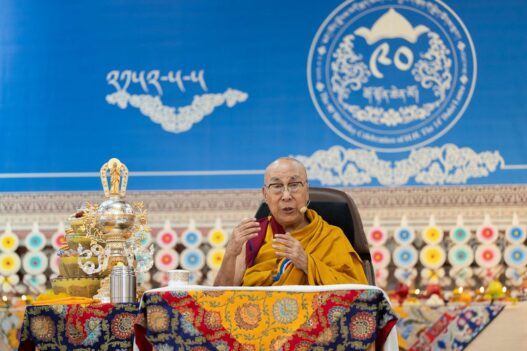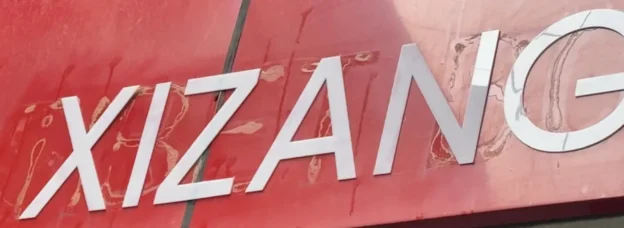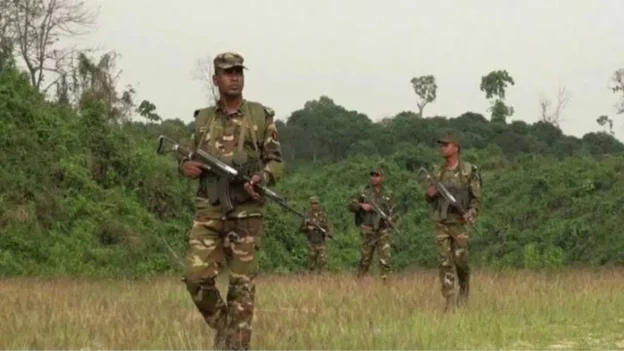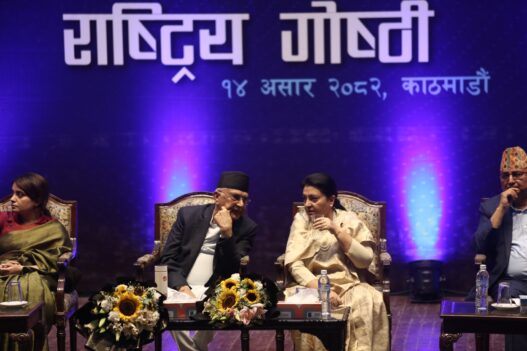On Tuesday, the Manipur government decided to further extend the ongoing internet ban in the state for the 10th consecutive time.
Amid the ongoing unrest in the State, Manipur residents have been denied internet access for the past 53 days, creating a significant infringement on their fundamental rights. This restriction is particularly severe among the Zomi-Kuki, where internet access is completely cut off. In addition, the telecom services of Jio and Vodafone have been down for over a week now.
In today’s modern world, internet access has become essential for communication, information dissemination, and expression of opinions from the public. However, the prolonged ban in Manipur has severely curtailed the freedom of speech and expression, in addition to affecting the education, livelihood, and health care of the Zomi-Kuki community.
Without online platforms to express their views, the Zomi-Kuki communities are being stripped of their right to engage in meaningful and informed discourse and the right to voice their concerns. This restriction hampers their ability to participate as equals in public discourse and perpetuates a discriminatory culture of silence and suppression, which the incumbent Manipur government has a good track record of.
Stifling access to information and voicing out the truth:
The internet ban in Manipur is not only hindering communication among its citizens but is also impeding access to vital information. In today’s digital age, the internet plays a crucial role in providing instant updates on local and global news, enabling individuals to make informed decisions. By denying internet services, the authorities are effectively restricting the flow of information, thereby hindering people’s ability to stay informed, which increases people’s susceptibility to misinformation. The internet ban also widens the digital divide in a region where the reach of ICT infrastructure is already minimal as compared to other parts of India.
By imposing an extended ban on internet services, there is limited ability of citizens to share firsthand accounts of incidents and perspectives, hampering the exposure of the truth and perpetuating a climate of misinformation and mistrust.
Impact on education, economy and health-care access:
The ban on internet access in Manipur has had far-reaching consequences, particularly in the realms of education and the economy. Educational institutions, heavily reliant on online platforms for learning, have been severely impacted, depriving students of access to crucial educational resources and opportunities for skill development. The state government on Tuesday further deferred the resumption of normal classes to July 1, further posing long-term setbacks to future prospects of school children.
One such example is Lhingboi, a recent graduate who laments, “I couldn’t take my CUET entrance exam this year due to the unavailability of internet.”
Lhing’s predicament echoes the struggles of thousands of students trapped in an internet-deprived zone. In the recently conducted undergraduate examinations under Manipur University, numerous students missed their exams, largely due to a lack of awareness caused by the internet ban. The absence of reliable internet connectivity hampers communication between the university, colleges, and students, leading to unfortunate consequences.
In addition, the ban on internet access has had dire consequences on businesses and the region’s overall economy. Numerous enterprises, particularly those heavily reliant on online transactions and e-commerce, are grappling with significant challenges sustaining their operations. The inability to access online markets, engage with customers, and conduct seamless transactions is causing severe financial hardships and hindering the economy.
One such example is Nancy, a budding entrepreneur from Kangpokpi whose business has experienced a staggering decline of 80% due to the internet ban. The inability to utilise online platforms and connect with potential customers has dramatically impacted her ability to generate revenue and expand her business. This setback has created immense strain and uncertainty for Nancy and her employees, who now face the daunting task of navigating through these difficult times.
Furthermore, David, a dedicated working professional from Lamka and the sole breadwinner of his family, who has worked from home has been unable to work for the past 50 days due to the internet ban. As a result, he is grappling with tremendous financial pressure and the burden of providing for his loved ones. Working from home has become an unattainable luxury, leaving David in a state of helplessness and distress. The far-reaching implications of the internet ban extend beyond the personal hardships individuals like Nancy and David face. The region’s broader economy is also suffering as businesses struggle to adapt to the sudden disruption in their operations. The absence of online connectivity has impeded productivity, stifled innovation, and restricted market access, hampering the growth and development of various industries.
Moreover, the ongoing violence in Manipur has resulted in numerous casualties, leaving a significant number of individuals in dire need of urgent medical assistance. It is estimated that over 800 injured individuals are currently undergoing both minor and major treatments. However, the absence of internet connectivity has severely hindered the crucial humanitarian intervention required for their care, including the mobilization of medical personnel and the delivery of essential services.
The lack of internet access has dealt a severe blow to the region’s coordination and efficiency of medical response efforts. In times of crisis, timely communication and information exchange is vital for deploying medical teams, coordinating the transportation of medical supplies, and ensuring that the injured receive the necessary treatments promptly. Unfortunately, the absence of reliable internet connectivity has disrupted these critical processes, impeding the swift and effective delivery of medical care to those in need.
The internet blackout has hindered the ability of medical professionals to access and share vital medical information and expertise. The lack of internet connectivity also limits the ability to seek external medical advice while hindering the ability of medical professionals to provide optimal care.
The absence of internet access in this humanitarian crisis has also exacerbated the challenges faced by the injured and affected the overall healthcare system in the region. Medical facilities, already burdened by the influx of patients, are now struggling to manage the flow of information and resources without reliable internet connectivity.
The denial of internet access to the Zomi-Kuki community perpetuates a significant digital divide, further marginalising their voices and exacerbating existing inequalities. Upholding freedom of expression and ensuring equal access to information is crucial for the progress and well-being of Manipur as a whole.
The extended internet ban in Manipur, now in effect until June 30, carries severe consequences for the people and their democratic rights. It suppresses freedom of speech and expression, inhibits access to vital information, disrupts education, hampers the economy, and impedes access to healthcare. Additionally, it obstructs the ability of individuals to voice their concerns, share their experiences, and expose the truth.
Open communication, inclusivity, and respect for fundamental human rights are essential and can serve as the foundation for building trust and fostering a sense of unity and understanding within the community. The authorities can foster an environment that encourages open dialogue, information sharing, and collaboration by lifting the internet ban.
In conclusion, it is vital that the government acknowledges the significance of internet access as a basic right and reconsiders the ban in Manipur. By prioritising freedom of expression, equal access to information, and the well-being of its citizens, the authorities can pave the way for a more inclusive and democratic society.







